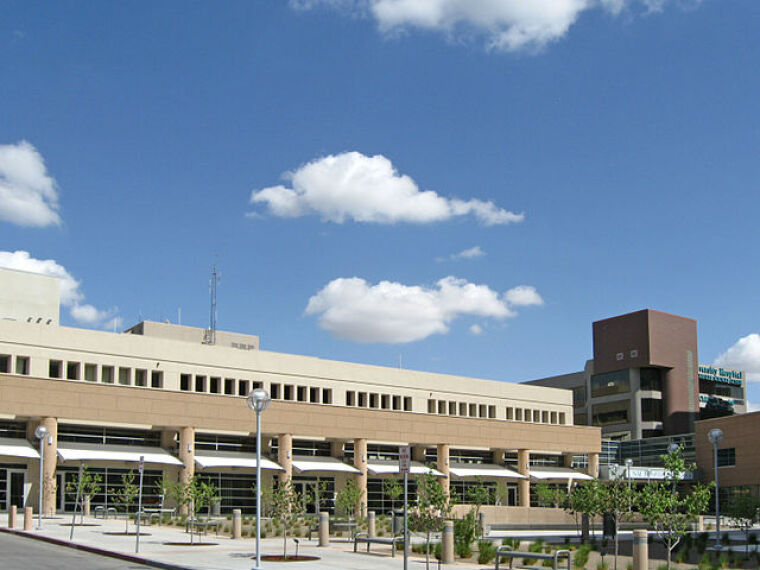University of New Mexico halts fetal tissue research following allegations of illegal activity

The University of New Mexico (UNM) has suspended its fetal tissue research program as the school conducts an investigation regarding allegations that a tissue from an abortion has been misused.
The UNM Health Sciences Centers has confirmed that it has launched an investigation on how one researcher handled and processed a fetal tissue acquired from the local abortion clinic Southwestern Women's Options (SWO).
The university and the SWO have long been accused of violating the law over the transfer of fetal tissue for research. Among the accusers was a post-abortive woman named Jessica Duran, who said that SWO was not forthcoming about what would happen to her fetus.
Under current law, it is illegal to buy or sell fetal tissue, and there are other specific rules for how it can be used.
Allegations against UNM were first forwarded to New Mexico Attorney General Hector Balderas' office in 2016 by a special U.S. congressional committee created to investigate Planned Parenthood's alleged involvement in the sales of aborted baby body parts and the world of fetal tissue research.
The committee examined tissue procurement firms and research entities including UNM, and it produced a report citing 15 instances in which it provided information to U.S. and state authorities of possible violations of federal and state laws.
On Thursday, the office of the attorney general announced that it has found no violations of state law in its investigation over the transfer of fetal tissue.
Balderas had ordered civil and criminal reviews but his office said that there was not enough evidence to indicate state violations. The investigation, however, was limited to state laws because Balderas had no jurisdiction over federal law. "We consider this matter closed," the attorney general's office said in a letter to pro-life group New Mexico Alliance for Life, which also made allegations against UNM.
The office also noted that the state law that governs research related to fetuses was never intended to regulate fetal tissue resulting from an abortion.
According to Life News, the university had suspended a researcher who was suspected of selling aborted baby body parts to a Michigan company.
Duran's attorney, Michael Seibel, said that he had just learned about the internal review at UNM Health Sciences. "This lady was suspended and barred from her lab in October according to reports and we're just finding out about it now through some sort of internal leak?" Seibel said.
Seibel is also questioning the investigation conducted by the attorney general's office, noting that his client has not been contacted by investigators.
He has accused the attorney general's office of protecting political special interests, but James Hallinan, a spokesman for Balderas, denied the allegation saying the office had conducted a thorough investigation that included interviews.
 Christians don't have to affirm transgenderism, but they can’t express that view at work: tribunal
Christians don't have to affirm transgenderism, but they can’t express that view at work: tribunal Archaeology discovery: Medieval Christian prayer beads found on Holy Island
Archaeology discovery: Medieval Christian prayer beads found on Holy Island Presbyterian Church in America votes to leave National Association of Evangelicals
Presbyterian Church in America votes to leave National Association of Evangelicals Over 50 killed in 'vile and satanic' attack at Nigerian church on Pentecost Sunday
Over 50 killed in 'vile and satanic' attack at Nigerian church on Pentecost Sunday Ukrainian Orthodox Church severs ties with Moscow over Patriarch Kirill's support for Putin's war
Ukrainian Orthodox Church severs ties with Moscow over Patriarch Kirill's support for Putin's war Islamic State kills 20 Nigerian Christians as revenge for US airstrike
Islamic State kills 20 Nigerian Christians as revenge for US airstrike Man who served 33 years in prison for murder leads inmates to Christ
Man who served 33 years in prison for murder leads inmates to Christ


 Nigerian student beaten to death, body burned over ‘blasphemous’ WhatsApp message
Nigerian student beaten to death, body burned over ‘blasphemous’ WhatsApp message 'A new low': World reacts after Hong Kong arrests 90-year-old Cardinal Joseph Zen
'A new low': World reacts after Hong Kong arrests 90-year-old Cardinal Joseph Zen Iran sentences Christian man to 10 years in prison for hosting house church worship gathering
Iran sentences Christian man to 10 years in prison for hosting house church worship gathering French Guyana: Pastor shot dead, church set on fire after meeting delegation of Evangelicals
French Guyana: Pastor shot dead, church set on fire after meeting delegation of Evangelicals ‘Talking Jesus’ report finds only 6% of UK adults identify as practicing Christians
‘Talking Jesus’ report finds only 6% of UK adults identify as practicing Christians Mission Eurasia ministry center blown up in Ukraine, hundreds of Bibles destroyed: 'God will provide'
Mission Eurasia ministry center blown up in Ukraine, hundreds of Bibles destroyed: 'God will provide' Church holds service for first time after ISIS desecrated it 8 years ago
Church holds service for first time after ISIS desecrated it 8 years ago Burger King apologizes for 'offensive campaign' using Jesus' words at the Last Supper
Burger King apologizes for 'offensive campaign' using Jesus' words at the Last Supper Uganda: Muslims abduct teacher, burn him inside mosque for praying in Christ’s name
Uganda: Muslims abduct teacher, burn him inside mosque for praying in Christ’s name